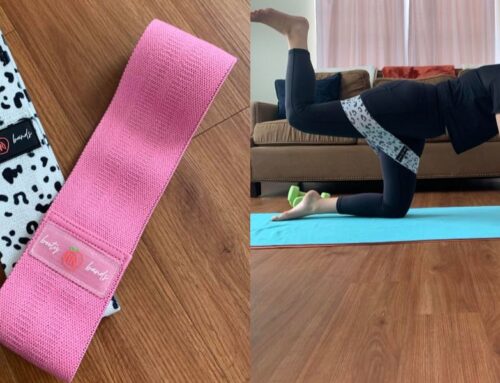
Are you curious about weight training and wondering if it’s the right fit for your fitness goals and lifestyle? Perhaps you’ve heard about the benefits of weightlifting, but you’re not sure if it’s something you should add to your workout routine.
In this article, we’ll explore the world of weight training, its benefits, and whether it’s right for you. By the end of this article, you’ll have the knowledge you need to make an informed decision about whether to incorporate weight training into your fitness routine.
Whether you’re looking to build muscle, lose weight, or simply improve your overall health and fitness, let’s dive in together and discover the power of weight training.
What is weight training?
Weight training is a form of exercise that involves using weights or other forms of resistance to challenge and strengthen your muscles.
The goal of weight training is to induce muscular contraction, which can help you build muscle mass, increase strength and endurance, and improve overall physical fitness. This type of training can be performed with a variety of tools, including free weights, machines, or even your own body weight.
By challenging your muscles with resistance, you can create a stimulus that prompts your body to adapt and become stronger over time. Whether you’re a beginner or an experienced athlete, weight training can be a valuable addition to your fitness routine.

Different Types of Weight Training Programs
Weight training programs come in a variety of styles, each with its own unique benefits and challenges. Here are some of the most popular types of weight training programs:
- Full-Body Workouts: As the name suggests, full-body workouts involve training all of the major muscle groups in a single session. These workouts are often done two or three times per week and can be a good option for beginners or those with limited time.
- Split Workouts: Split workouts involve dividing your training into separate sessions, each targeting a specific muscle group or set of muscles. For example, you might do an upper-body workout on one day and a lower-body workout on another. This type of training can allow for more targeted training and increased volume but requires a greater time commitment.
- Push-Pull Workouts: Push-pull workouts are separate exercises based on whether they involve pushing or pulling movements. For example, a push workout might include exercises like bench presses and shoulder presses, while a pull workout might include exercises like rows and pull-ups. This type of training can help ensure balanced muscle development and reduce the risk of injury.
- Circuit Training: Circuit training involves moving from one exercise to another with minimal rest in between. This type of training can be a great option for those who want to combine strength training with cardio or want to save time in their workouts.
- High-Intensity Interval Training (HIIT): HIIT involves performing short bursts of intense exercise followed by periods of rest or lower-intensity activity. This type of training can be done with weights, bodyweight exercises, or a combination of both and can help increase cardiovascular fitness while also building strength and endurance.
- Bodybuilding: Bodybuilding involves using weight training to build muscle mass and definition for aesthetic purposes. This type of training typically involves high volume and relatively low weights and can require a significant time commitment.
No matter which type of weight training program you choose, it’s important to remember to start slowly, use proper form, and gradually increase the weight and intensity of your workouts over time. With consistency and dedication, weight training can help you achieve your fitness goals and improve your overall health and well-being.
How Weightlifting Can Help You Achieve Your Weight Loss Goals
Weightlifting is a great way to achieve weight loss goals because it can help you build lean muscle mass, which in turn can boost your metabolism and help you burn more calories throughout the day.
When you lift weights, you create small tears in your muscle fibers, which your body then repairs and rebuilds during rest periods. This process requires energy and therefore burns calories. Additionally, as you build more muscle mass, your body will require more energy to maintain that muscle, resulting in an increase in your basal metabolic rate (BMR). This means that even when you’re not actively exercising, your body will be burning more calories at rest.
To maximize the weight loss benefits of weightlifting, it’s important to combine it with a healthy diet and regular cardiovascular exercise. By incorporating weightlifting into your fitness routine, you can achieve your weight-loss goals while also improving your overall health and fitness.
Why I really like weight training
Weight training has become one of my favorite forms of exercise for several reasons. Firstly, it allows me to build muscle and strength, which helps me perform daily activities with greater ease and feel more confident in my body. This feeling of strength and empowerment is unparalleled and gives me a sense of accomplishment that I don’t get from other forms of exercise.
Secondly, weight training also benefits my cardiovascular health and fitness level. As I push myself to lift heavier weights or do more reps, my heart rate increases, which helps me to improve my endurance and overall fitness level. This translates into feeling more energized and productive throughout the day.
Another reason why I enjoy weight training is because it’s an effective way to burn calories and lose fat. By increasing my muscle mass through weightlifting, I’m able to boost my metabolism, allowing me to burn more calories even when I’m not working out. Studies have even shown that weight training can be more effective for weight loss than aerobic exercise, which is another reason why I’ve incorporated it into my fitness routine.
Finally, weight training is a great way to relieve stress. When I’m lifting weights, I’m completely focused on my form and movement, which helps me to clear my mind and forget about any stresses or worries I may have. It’s a form of therapy for me and I always leave the gym feeling more relaxed and centered.
Things to consider before you start weight training
Weight training is an excellent form of exercise that can help you build muscle, increase strength, and improve your overall physical health. However, before you start lifting weights, there are a few things you should consider to ensure that you do it safely and effectively. Here are some key factors to keep in mind:
- Your Health Status: If you have any pre-existing medical conditions, it’s important to consult with your doctor before beginning any new exercise program. This is particularly important if you have a history of heart disease, high blood pressure, diabetes, or joint problems.
- Your Fitness Goals: Before starting a weight training program, think about what you hope to achieve. Do you want to build muscle, increase strength, or lose weight? Having a clear idea of your goals will help you create a workout plan that is tailored to your needs.
- Your Experience Level: If you’re new to weight training, it’s important to start slowly and gradually build up your strength and endurance. Consider working with a personal trainer or taking a beginner’s weight training class to learn the proper form and technique.
- Your Schedule: Weight training requires time and commitment. Before you start, think about how often you can realistically commit to working out. It’s important to be consistent to see results.
- Your Diet: To support your weight training program, it’s important to eat a healthy, balanced diet that is rich in protein and other nutrients. Talk to a registered dietitian to learn more about how to fuel your body for weight training.
Итоги
Weight training can be an excellent addition to your fitness routine, whether you’re looking to build muscle, lose weight, or simply improve your overall health and fitness. By challenging your muscles with resistance, you can create a stimulus that prompts your body to adapt and become stronger over time.
The benefits of weight training extend beyond just physical strength and aesthetics, as it can also have positive impacts on mental health, bone density, and metabolic health. However, it’s important to approach weight training with caution, as improper form or too much weight can lead to injury.
It’s always a good idea to consult with a fitness professional before starting a weight training program, especially if you’re new to exercise or have any underlying health conditions. With the proper guidance and a consistent routine, weight training can help you achieve your fitness goals and improve your overall quality of life.



